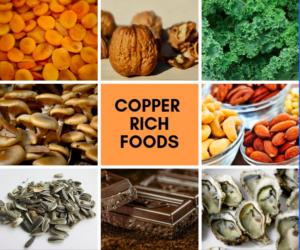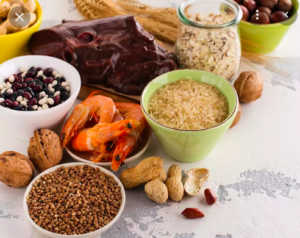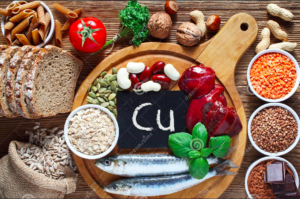Copper: Needed for the formation of bone, hemoglobin and red blood cells, copper also promotes healthy nerves, a healthy immune system and collagen formation. Copper works in balance with zinc and vitamin C. Along with manganese, magnesium and iodine, copper plays an important role in memory and brain function. Nuts, molasses and oats contain copper but liver is the best and most easily assimilated source. Copper deficiency is widespread in America. Animal experiments indicate that copper deficiency combined with high fructose consumption has particularly deleterious effects on infants and growing children.
Copper is essential in tiny amounts for blood production and healthy nerves and hair.
Possible copper deficiency – anemia, low body temperature, bone fractures and osteoporosis, low white blood cell count, irregular heartbeat, loss of pigment from the skin (vitiligo), and thyroid problems.
Some may have Wilsons’ disease and not know it.
(Healthy people excrete copper they don’t need but those with Wilson disease cannot).
Need zinc and manganese and other micro-minerals all in balance.
Dietary sources of cobalt are the same as vitamin B12, such as foods of animal origin or fermented foods where the bacteria produce the vitamin. Also foods grown directly in the soil – mushrooms, onions, garlic.
Dietary sources of copper include oysters, liver, whole grain breads and cereals, shellfish, dark green leafy vegetables, dried legumes, nuts, and chocolate.
Read more



